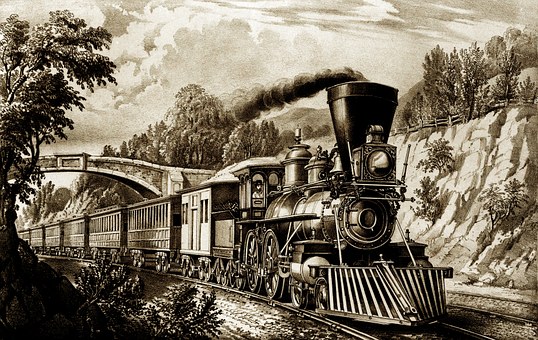Decades ago, before space travel and technology flooded the American film scene, motion pictures about the Old West often included trains. The peak of tension in such action-adventure movies occurred when a train wreck looked inevitable because some bad guys had taken out the conductor. This left the locomotive with no one to control it while a destroyed bridge and certain doom lay ahead. Movie-goers sat spellbound, willing the hero’s white horse to carry him swiftly enough to jump aboard the train, dash to the engine, and pull the lever to stop the speeding machine before disaster ensued.

I thought about how Jesus handled His emotions. By reading the New Testament one gets a ringside seat to the spectrum of Jesus’s humanity. He rebuked the antagonistic religious leaders with, “Woe to you, scribes and Pharisees, hypocrites! For you clean the outside of the cup and of the dish, but inside they are full of robbery and self-indulgence. You blind Pharisees, first clean the inside of the cup and of the dish, so that the outside of it may become clean also” (Matthew 23:25-26). All four gospels recount that one day in the temple He grew so frustrated with the money changers and those trying to make a buck off of worshipers that He overturned their tables and drove them out with a whip! When a close friend died, He wept.

Yet… while being reviled, He did not revile in return; while suffering, He uttered no threats, but kept entrusting Himself to Him who judges righteously (I Peter 2:23). And when His two disciples wanted to call down fire from heaven to destroy some unwelcoming Samaritans, Jesus vehemently refused, reminding them, “The Son of Man did not come to destroy men’s lives, but to save them” (Luke 9:56). He never let His anger escalate to the point of rage or violence.
Jesus undoubtedly remembered David’s words: Be angry and yet do not sin (Psalm 4:4). And Jesus’s own brother later echoed this wisdom: The anger of man does not achieve the righteousness of God (James 1:20).

Over the years I’ve racked up countless instances of living by my feelings. On too many occasions I gave into my anger, acting on it in ways I regretted; I allowed my flesh to dominate the situation. I didn’t prevent that locomotive from crashing!
But if Jesus could stop the train of His emotions from taking over His life, why can’t I? Do I have no choice but to react sharply during a disagreement, in traffic, or to politics? The Holy Spirit is my “hero” and is quite eager to figuratively ride up on his white horse, join me at the helm and enable me to pull the lever that will stop a possible emotional disaster. If I simply acknowledge that He’s with me, and invite Him onto my train, I, too, can control my emotions.

